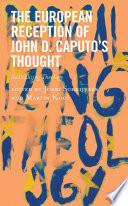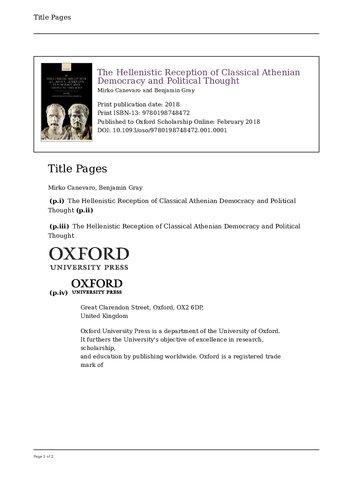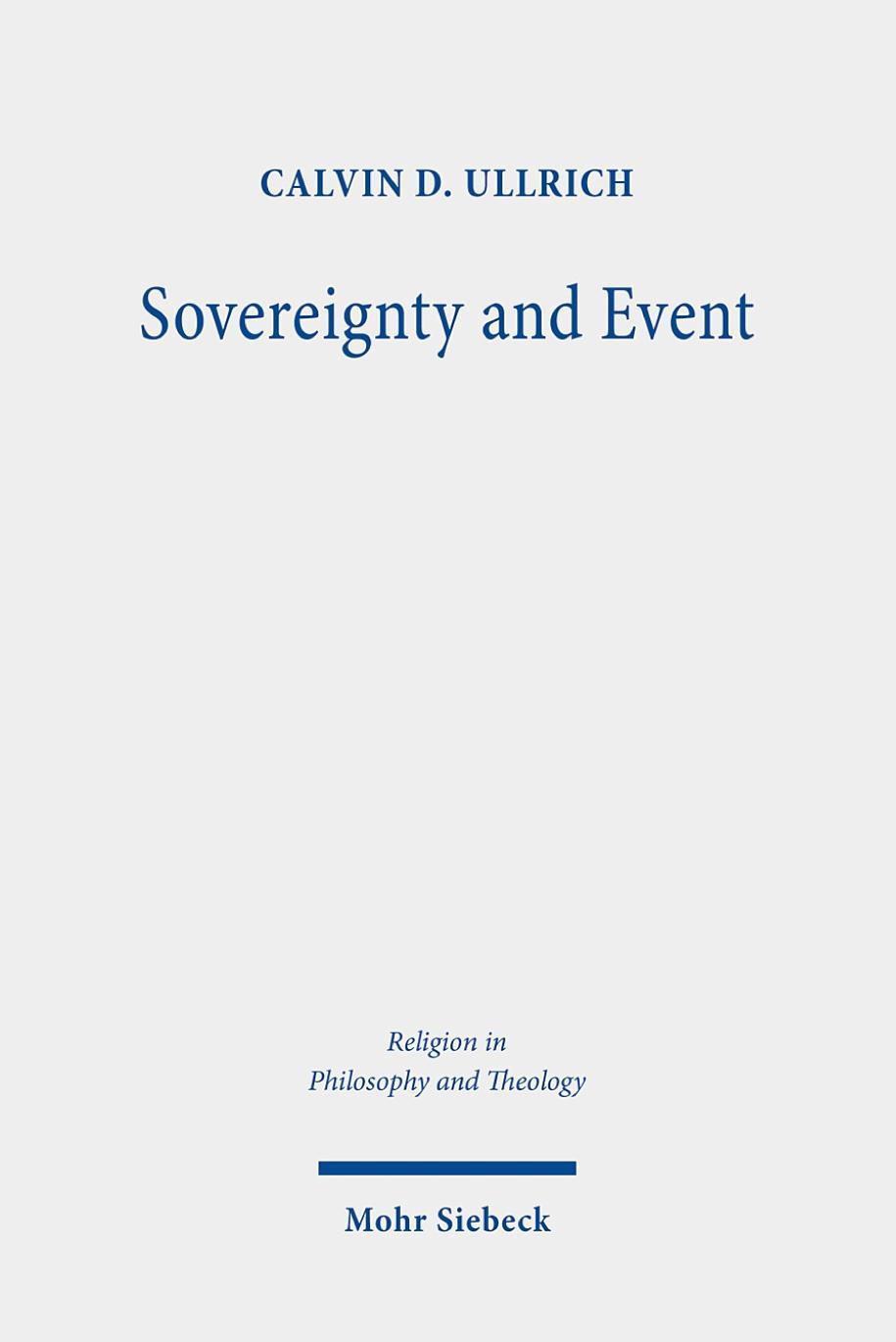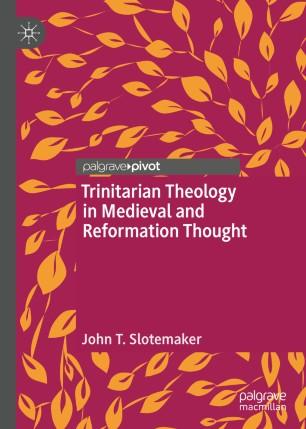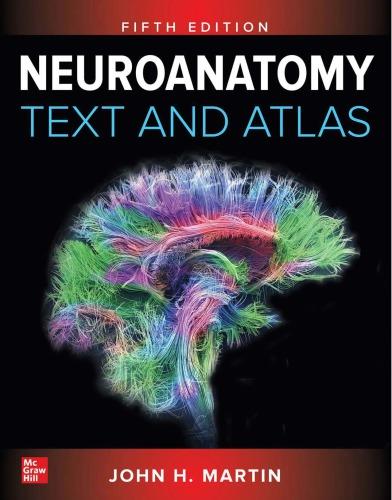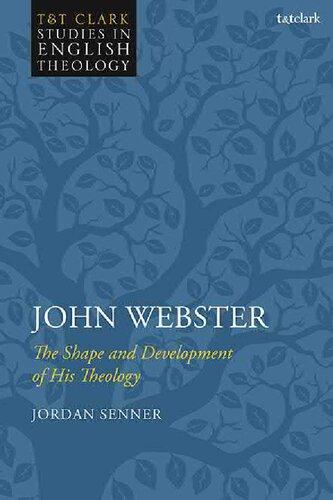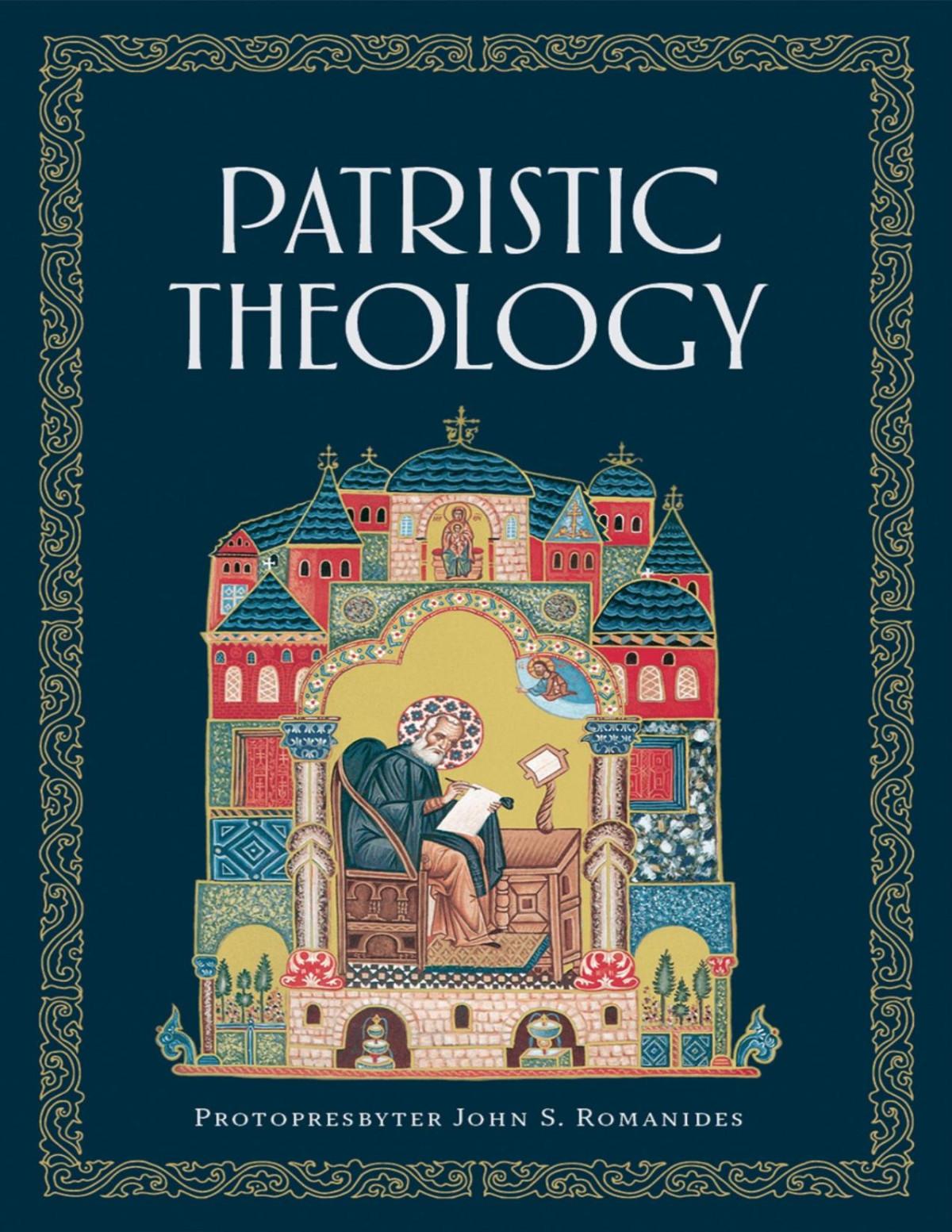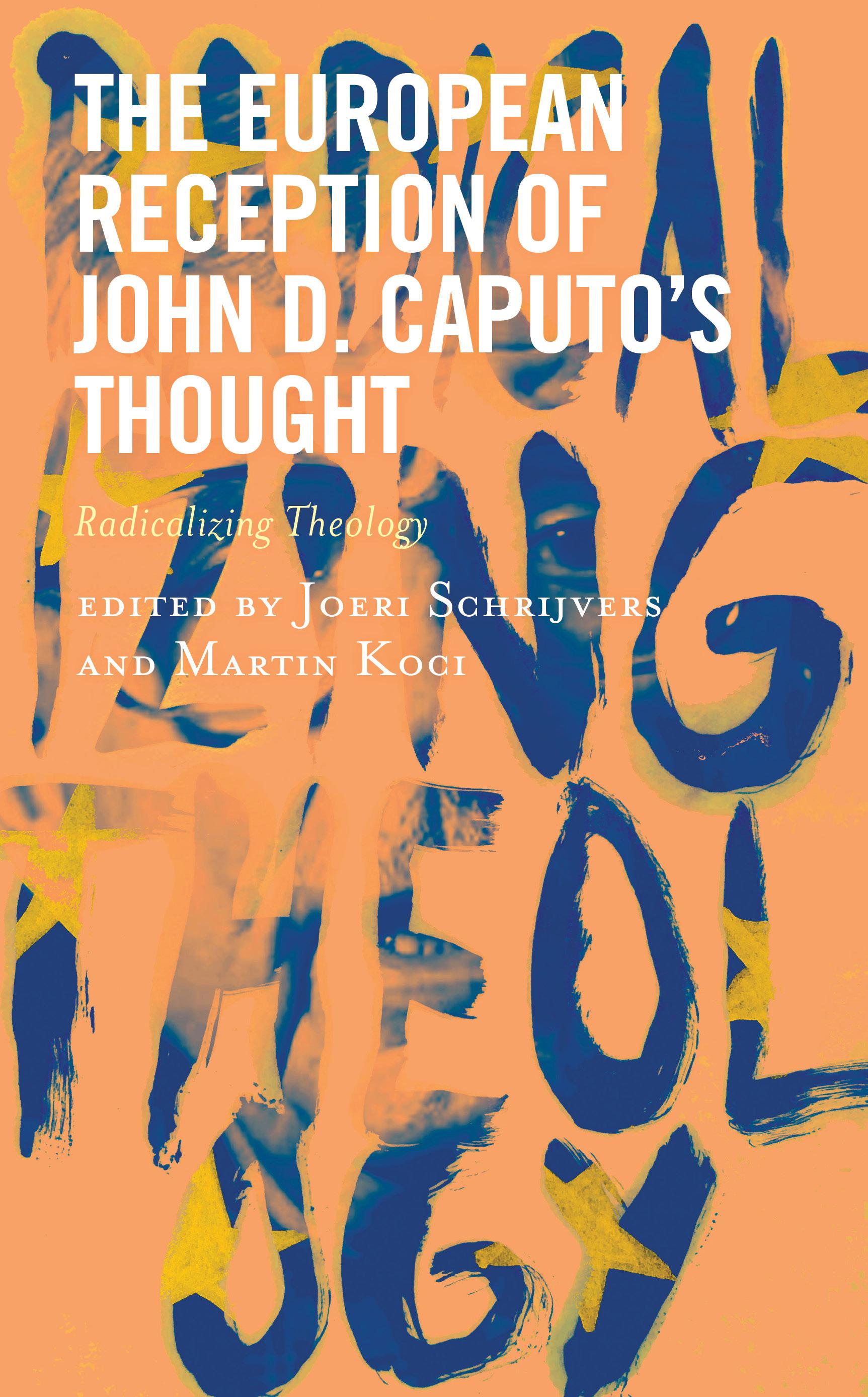John D. Caputo’s Radical Theology in Europe An Introduction
Joeri Schrijvers and Martin Koci
WEAK AND RADICAL THEOLOGY: CAPUTO IN EUROPE
John D. Caputo has recently proposed, after years of philosophical work in the wake of Jacques Derrida’s deconstruction, his own version of a radical theology. Since this “coming out as a theologian,” a number of books have appeared that develop this radical theology: The Weakness of God: A Theology of the Event (2006), The Insistence of God: A Theology of Perhaps (2013), The Folly of God: A Theology of the Unconditional (2015), and Cross and Cosmos: A Theology of the Difficult Glory (2019), being the main points of reference. We are now all awaiting for the volume to come later this year, which seeks to relate this radical or weak theology to the philosophical protagonists of our day: Specters of God: An Anatomy of the Apophatic Imagination (2022). Caputo’s radical theology is said to focus less on rigid dogmatic formulas of traditional religion and focuses, rather, on ethical themes such as hospitality and openness to the stranger. Caputo’s work has gathered a significant amount of followers in the United States, where he is one of the main theologians today. This volume proposes to evaluate this new form of religion from out of the various religious and theological backgrounds from Europe’s main countries. Is only a rather secular mind-set able to welcome Caputo’s thinking or does it, rather, sit well with more traditional stance toward religion? The aim of this volume is to gather Catholic and Protestant voices around Caputo’s work to evaluate the match with the European context.
To this end, we have invited scholars from all over Europe to reflect on their respective religious backgrounds and their relation with Caputo’s form of radical theology and so add to the European reception of Caputo’s radical
Joeri Schrijvers and Martin Koci
theology. This introduction will present a short survey of the previous hospitalities to Caputo’s work, for this reception of Caputo’s work in Europe has been going on for quite some time: one of the first events, in this regard, must have been the Dutch translation of his On Religion in 2002. This probably was some sort of package deal with the publisher from the United Kingdom, Routledge, since all the other works in this series Thinking in Action, a series confronting major cultural phenomena such as the internet, film, and so on, were translated to Dutch as well.1 It is not until 2007 that serious academic reception took place. Here we, the editors, need to tip our hat to Lieven Boeve who was leading a then vibrant research community at the University of Leuven. In the academic year 2007–2008 a lot of leading scholars within the field of continental philosophy of religion and philosophical theology in the continental tradition came to Belgium to present their work to students. All of these authors were first introduced by young doctoral scholars. John D. Caputo was one of the scholars who presented his work to the Leuven students, as did for instance Kevin Hart and Graham Ward. Out of these events grew the book Between Philosophy and Theology: Contemporary Interpretations of Christianity (2010).2 It is perhaps no exaggeration that the idea for the present volume germinated there and then. At least three of the “students” present there have since published monographs that discuss Caputo’s radical theology. There is the work of us two editors3 but above all the monograph by the late Štefan Štofaník, still one of the most personal confrontations with Caputo’s theology to date, that needs to be mentioned.4 Around the same time Justin Sands’ monograph on Merold Westphal was published. Sands was part of said research group and his Reasoning from Faith likewise contains a chapter on Westphal’s debates with Caputo and, as most of us were asking those days, on the presence, still, of some sort of ontotheology and metaphysics in Caputo’s works.5 All of us were present that weary day in March 2008 that Caputo took the stage in Leuven and made the statement that “nobody trusts theology.”6 We the editors still recall the impact that sentence had on a bunch of young theologians there must have been ten of them at a certain time seeking their way within the academic field. Here was Caputo saying that no one trusts theology and, on top of that, that “there is good reason” for this disbelief in these so-called masters of belief. There is a gap, of course, between this academic reception and what the reception of radical theology might mean for religious communities. In this regard, when it comes to the European reception in a broader sense, it is good to know that this gap has been filled in, in the Low Countries at least, with the recent translation of his fascinating Hoping against Hope (2015), one more attempt of Caputo to escape the strict academic boundaries.7 The translation reached a second print soon and led to interviews with Caputo in major Dutch newspapers. Finally, we should acknowledge that the concept of “radical theology” is quickly
3
John D. Caputo’s Radical Theology in Europe gaining terrain in the Netherlands, to which the European Radical Theology Network may testify. Out of these networks, engineered by Wouter Nieuwenhuizen and Josef Gustafsson, the participation of Barry Taylor, who focuses on Caputo’s radical theology in an increasingly secular Europe, specifically in the present volume grew.8 Apart from this, introduction to radical theology, focusing both on the work of Caputo and of Žižek, has recently appeared.9 In this volume, however, Enrieke Damen and Rick Benjamins focus on Caputo’s relation to the Black Lives Matters movement in Europe and on the Protestant theological background of Holland, respectively.
Translations of Caputo’s steps on theological terrain in French have equally been slow. Pascal Renaud-Grosbras, one of the contributors to this volume, will relate the events leading up to her translations of some chapters of The Insistence of God, two of which were presented in the journal issue she and Elian Cuvillier edited about Caputo’s theology.10 It seems that the French-speaking parts of Europe were first introduced to Caputo’s theology through a conference organized in Switzerland, in May 2013, on the topic of “The Wisdom and the Foolishness of God,” to which Caputo contributed by giving the key-note address. The importance of this event cannot be underestimated as it led to two journal issues focusing on Caputo’s oeuvre and to the eventual publication of the French translation of The Weakness of God 11 France, however, often suffices for the French: it is no wonder, then, that the theological domain established around Jean-Luc Marion and Emmanuel Falque, for instance, never really engaged with Caputo’s work, Caputo’s critique of Marion notwithstanding.12 In Norway, reception of Caputo’s work crystallizes in a few journal articles13 and Jan-Olav Henriksen’s contribution to this volume will no doubt be important to make Caputo’s work more known in the North of Europe. Calvin Ullrich focuses in this volume on Caputo’s reception in Germany through discussing and criticizing the contributions to workshop resulting in the publication of a volume of essays called Gottes schwache Macht. Alternativen zur Rede von Gottes Allmacht und Ohnmacht in 2017.14 As far as we know the Spanish-speaking world has been served by the translation of The Weakness of God, in 2014 already, by Raul Zagarra.15 Considering that this translation opened up Caputo’s work in the Latin Americas more generally, we have not incorporated any Spanish authors in this volume.
No European, however, is an island. Here too the reception of Caputo’s work echoes what happens in the English-speaking world. Two events here perhaps need to be mentioned. On the one hand, there was the debate between John Milbank and Slavoj Žižek in The Monstrosity of Christ in which the latter criticized Caputo for not allowing the event to properly incarnate in a name and so missing out on the materialism that, for Žižek, is the only way forward after metaphysics.16 The critique triggered Caputo enough to respond
Joeri Schrijvers and Martin Koci
with a chapter in his own The Insistence of God stating clearly that Žižek’s reading was based more on a “misunderstanding” than anything else.17 If, for Žižek, Caputo is not materialist enough and if for Žižek just any talk of God will somehow sometimes smuggle in an antimaterial instance to back up contingent materiality, then Caputo’s take on contingency is more of a hauntological flavor. There is no other matter than the matter here happening before us and the only materialism Caputo then allows is the “materialism of Martha,” responsible as it is for what might be happening, for the very materialization of events, not knowing whether or not it will do these events justice.18 This dialogue between Milbank and Žižek showed rather that at the time the theological landscape in the United Kingdom was dominated by Radical Orthodoxy, the theological movement that sprang up in the wake of Milbank’s works. Domination, however, is not a word Caputo likes to use and the reception of his radical theology in the United Kingdom remained scarce. We hope that Marie Chabbert’s contribution to this volume might help to turn the tide and Calvin Ullrich’s chapter, by pointing to a material turn in Caputo’s recent work, adds to Caputo’s response to Žižek.
On the other hand, there is a second publication that looms over the European reception of Caputo’s radical theology, namely the publication of Aaron Simmons and Stephen Minister’s landmark Reexamining Deconstruction. 19 Many of the contributions in this volume comport themselves to this high point in the reception of Caputo’s radical theology. On one point, however, Simmons and Minister seem to follow Žižek’s critique: whereas Žižek deplored the fact that Caputo was not materialist enough, Simmons and Minister critique Caputo for being too little of a materialist. The difference is small but significant: for Žižek not one historical contingency could properly be conceived by Caputo (except through supposedly having recourse to a God of the events), for Simmons and Minister the very presence of these historical contingencies is not sufficiently taken into account by Caputo. The worry, in this second case, is that the extant, material “religions with religion” are not being valorized properly by Caputo and his “religion without religion” is but a postmodern rephrasing of a Kantian noumenon once again forgetting the very concrete phenomena in which we breathe and with which we live, especially those of determinate religion. Simmons and Minister’s critiques voiced a suspicion that a great many, perhaps, at the time had over and against works, and our readers will see the contributions in this volume come back to this criticism time and again. We will see Renaud-Grosbras echo this suspicion from within practical theology: if not one religious practice can be understood as the religious practice, how then can we be certain that our religious practice is in fact a good practice?
The unity of the European response we gather here will then soon shine forth. Two “trends,” as it were come to mind immediately: whereas earlier
John D. Caputo’s Radical Theology in Europe
work on Caputo tended to focus indeed on the Kantian heritage of his weak and radical theology, in which his “religion without religion” was but a doublet, a religion within the limits of a weakened reason, of traditional religion, the chapters in this volume focus more on the positive contribution this weak theology can give to forms of traditional religion. Could it be that the Europeans gathered here, who have all witnessed in their own way the demise of traditional religion look to Caputo to strengthen their religious contexts again?
A second concomitant trend is the shift from “weak” theology to “radical” theology. We have slowly seen emerging a theology in its own right in Caputo’s work: from a somewhat hesitant weak theology, which perhaps was indeed too reliant and contaminated by the forms of traditional religion which it sought to deconstruct, to a full-fledged radical theology which is, in this volume, being interrogated about its relation and contribution to everything that classical theology held dear: the incarnation, our salvation, our prayers, and so on. This volume, then, seeks to advance this move from “religion without religion,” as a somewhat second-order discourse to a radical theology that aids theology on its very own terms. The debates surrounding weak theology’s supposed mere inversion of metaphysical and traditional statement, where the omnipotent God for instance would be simply substituted with a “weak” God, make up for quite some chapters in this volume. Yet Caputo’s turn to a “radical” theology deserves our attention too. In The Folly of God, for instance, Caputo noticed that his is a radical theology, a theology that is not interested in the question of God per se, that has deeper interests even than God. Its only interest, and this is why it is close to thinking in a more philosophical and perhaps even Heideggerian sense, is in raising radical questions and in so prolonging the art of questioning.20 Quite some chapters in this volume will then trace this shift this realization rather in Caputo’s work.
All of the chapters receive a response by Caputo in which he enters into dialogue with the questions arising from out of the European context. These responses are, quite rightly, configured as addresses, if not greetings, and we only hope that Caputo finds his greetings returned in the chapters we here offer in praise of his work.
RADICAL THEOLOGY AND POLITICS
Calvin Ullrich’s chapter, “Radical Theology as Political Theology: Exploring the Fragments of God’s Weak Power,” seeks to show how Caputo’s theology is not a prolongation of the formalism of a Kantian sublime but rather opens onto a materialist politics. Ullrich aims to do this by briefly recalling Caputo’s reception in Germany in most often hermeneutical theological circles and recent rather secular philosophies. Whereas the first seeks to retain more
Joeri Schrijvers and Martin Koci
than just the “name of God” by clinging onto God’s omnipotence, the second tends to see in Caputo just an inversion of power where weakness now is the ultimate name of God. Over and against these German responses, Ullrich proposes to see a political theology at work in Caputo’s theology more straightforwardly: its messianic import is nowhere else than in a material engagement in the world. Caputo’s truth is a truth in the making, a “doing God” which binds God’s insistence to us and us to God. In conclusion, Ullrich urges Caputo to take one more step and move to a “cosmological reduction,” which at long last might shed the remains of an all too humanist tradition.
Marie Chabbert’s chapter, “A Radical Fidelity: John D. Caputo and the Future of Religion,” focuses on who counts as faithful, who is in and who is out that is, so complicating the Christian response to the event of the call, central to Caputo’s radical theology. Hers is an account that stresses, not the identification of who counts as a Christian, as other chapters in the volume do, but rather to describe the responsibility of the theologian, radical or not, to take on the role of whistle-blower: theology is to be interrupted as soon as it becomes too self-assured and too certain when it comes to the question who counts as a Christian and who does not. Chabbert so seeks to portray the active contribution of Caputo’s theology to the formation and prolongation of Christian institution: Caputo, for Chabbert, is in the business of saving religion. Of particular note in Chabbert’s chapter is her sketch of the relation between Derrida and Caputo, which today in the literature has perhaps somewhat been understudied. For Derrida, the uncertainty regarding God lies in our act of naming God rather than in a supposed existence of such God as a proper referent. This is why atheism and theism, the one denying, the other affirming a particular naming of God, share the same troubles. Yet where this leads Derrida to a sort of indifference and to have some anxiety about which institution or tradition to subscribe to, and about how to do this, Caputo engages precisely a deconstructive practice from within religious institutions. Whereas Derrida was destined to remain “an outsider,” Caputo tries his very best to become Christian, to be part of the tradition while remaining critical about its practices, in short, to take the risk of naming God. Chabbert clearly shows how for Caputo “theology” has a more strict meaning than it did for Derrida, that a radical theology flows from Derrida’s deconstruction that Derrida, perhaps, did not foresee. On this score, Chabbert concludes, Caputo’s project of a radical theology is closer to Jean-Luc Nancy’s deconstruction of Christianity than it is to Derrida’s disengaged deconstruction. More than the other chapters in this volume, perhaps, Damen’s chapter, “Is It Radical Enough? The Ethical Call of Caputo’s Theopoetics to Stick to the Difficulty of Life in Light of Black Lives Matter,” underscores the continuity of Caputo’s recent radical theology with his earlier work. Damen in effect intimates that Caputo’s theopoetics of the cross is a variation of the (earlier)
John D. Caputo’s Radical Theology in Europe
radical hermeneutics he had proposed. Caputo’s theopoetics of the cross, for Damen, is to be regarded not in the light of the dialectical victory in and through the resurrection but rather as a victory in defeat, as a radical siding with the victim. Caputo’s theopoetics, then, goes to the very roots of theology, to vulnerability of our lives, and the questions this poses. For Damen, this radical theology of the cross is inherently political and she makes a case for the ability of Caputo’s theopoetics to side with the victims of racial injustices, such as decried by the Black Lives Matter movement. For this, she here stages an intriguing dialogue between the work of Caputo and the womanist theologian Kelly Brown Douglas.
RADICAL THEOLOGY AND THE TRAGIC VERSUS HOPE AND LOVE
George Pattison discusses “The Foolish Call of Love” in Caputo’s works. In an intriguing meditation, he relates Caputo’s account of the Folly of God to the narrative imaginations of such foolish rulings in Shakespeare’s character of Poor Tom in his King Lear and Dostoevsky’s Prince Myshkin in The Idiot The question Pattison poses to Caputo is what exactly these two figures might mean for our understanding of divine foolishness. In Shakespeare, Pattison finds an account that is close to Levinas’ later statements of the widow, the orphan, and the stranger being our masters. True mastery would then lie in an utter defenselessness. If Shakespeare so hints at our commiserating together on our account of being all “unaccommodated men,” Pattison turns to Dostoevsky to broach the question of salvation, by a reading of Dostoevsky’s Idiot as one of his allegories of Christ. It is here that the question of love surfaces as a “way” that trumps death despite death even. This sheer possibility of living otherwise is what Pattison brings to, and finds in, Caputo’s œuvre. Yet this remarkable chapter ends with what seems a justified inquiry when it comes to the praise of the folly of love in Caputo’s theology: why does the tragedy of the human condition in his work remain so scarcely audible?
Agatha Bielik-Robson’s chapter, “From Kenosis to Kenoma: The Enigma of a Place in Derrida and Caputo,” revisits a debate that could be observed in the literature for a little while now: are not the inversions of Caputo, simply substituting a weak God for a former strong God, playing the same old game on the same old playing ground but just in other terms? Can one not, instead of this inversion of metaphysical statements, find another, different way to proceed after metaphysics and move aside these terms that belong to a classical theism nonetheless? Bielik-Robson defends not the kenosis of faith, a faith forever weakening, one finds in Caputo (but where weakness itself thus always runs the risk of being yet one more spectacle of power) but rather a
Joeri Schrijvers and Martin Koci
Marrano “religion without religion” she traces back to Derrida. Derrida was on the lookout for a God in retreat, for the tsimtsum one finds in the mysticism of Isaac Luria, from out of a kenomatic place that itself is not that easily circumscribed as divine or as the simple inversion of weaker and stronger gods. From this place, nonetheless, Bielik-Robson launches a question to Caputo’s radical theology: can it really move beyond the, however subtle, inversions of the constructions of the “palace theologians” it so tirelessly seems to deconstruct?
Maria Francesca French and Barry Taylor’s chapter, “A Post-Belief Europe and the Offer of John Caputo,” goes to the heart of this volume: what has Caputo’s radical theology to offer to Europe where, in general, the religious way of life is in decline? These authors speak of a re-enchantment of sorts, of a hope for something far more than the religious institutions have offered to satisfy the religious hunger. For this, the religious imagination has one again to be fed, and it is this exactly that John D. Caputo offers to us all. By liberating faith from the constraints of religious belief, French and Taylor argue Caputo reveals the “viable alternatives” to a seeking religious imagination. This radical theology, however, does not occur ex-nihilo: it starts with the remains, the remnants, and the residue of Christianity in Europe. For this reason, too, Caputo’s haunto-theology should be applauded it deals with our past, with our determinate religions but from within a “dynamic of freedom” that welcomes what is new and to come.
RADICAL THEOLOGY AND CHRISTIANITY
Rick Benjamins, “The Call and the Cross in Caputo and Bultmann,” places Caputo’s radical theology in relation to the theology of the so-called Amsterdam School of the Dutch theologians Klaas Henrikse, Frans Breukelman, and Harry M. Kuitert. As many authors in this volume, Benjamins pays attention to the affirmative gesture in Caputo’s radical theology, which, perhaps more than Derrida’s deconstruction, seeks to move beyond an always unsettling operation. Benjamins in effect argues that our mundane reality, for Caputo, can give place to the event so implicitly shifting the attention from its call to the world which complies precisely to this call. Caputo’s turn to the material world (in its turn exemplified by his increasing Auseinandersetzung with Hegel) is evident by his sense for this finite world of ours, and that we are part and parcel of a cosmos destined to fade away. What sense, then, Benjamins asks, has an event that is “always to come,” in such a finite world? Everything hinges here, Benjamins argues on the status of the cross: is it a “nihilism of grace,” poured out for nothing and without why, as Caputo has argued or is, perhaps, more at stake here? For the latter, Benjamins brings Caputo’s
John D. Caputo’s Radical Theology in Europe
thought into contact with that of Rudolf Bultmann who put the essence of Christian existence precisely in the realization that one is called rather in the identification (or not) of the call. Would it be not more important for Christians today to act as Christians because of their response to the cross rather than it is to respond somewhat agnostically to a call that literally would come from God knows where?
Christophe Chalamet’s chapter, “Caputo and the Unidentifiability of God,” focuses likewise on a question arising from within the Christian tradition. Here the issue is again the identifiability of God, not so much from out of the Christian response to the call but rather from out of the doctrine of the incarnation, as God’s consent to become identifiable. It might not be, Chalamet argues, up to us to make God happen in the world. Rather, the Christian teaching states that God happened to the world. Following the lead of the tradition, this would save Caputo from putting such a heavy burden, and responsibility, on the human (and in each case all too human) response to the call of the divine. With this line of thought, Chalamet nonetheless approaches questions that pop up in many contributions of this volume: is Caputo’s shift from an ontology to an ethics or to a theopoetics not underestimating the essence of Christian theology? A God that would show up in being, that would be the very life of being, Chalamet argues, would ease the overburdening of the human response to God somewhat and so make room for a “dance” between the human and the divine.
Jan-Olav Henriksen’s chapter, “God The Opportunity for Continued Discontent,” looks for the affirmative and constructive character of Caputo’s radical theology rather than focusing on its deconstructive nature. Is not Caputo communicating, Henriksen asks, a specific experience of God or perhaps even delineating the conditions for such an experience to occur? For this, Henriksen turns to Caputo’s account of the practice of prayer. In prayer, specific understandings crystallize and take form within the world. Prayer, on Caputo’s reading, is not an automated response commandeered by a religious police but, in its very variety and multitude of ways, attention to the world, in which God is to take place. Prayers, like events, prepare the ground for something new. They pray exactly for something new in what happens. In this way, Henriksen intriguingly argues, prayers exemplify what one can call the quasi-transcendental operation of the event in Caputo: events are constitutive of the new, but are only found in what is constituted which so serves as their transcendental clue. The transcendental and the subjective desire for something external, something that is forever outside of its reach. This interplay between the subjective and the external, for Henriksen, is evident also in Caputo’s thinking of God. No philosophical (or theological for that matter) project can ever comprehend God. Caputo here approaches, Henriksen shows, the classical thought of a deus semper major. But such a
Joeri Schrijvers and Martin Koci
negation, or deconstruction, of all ideas and images of positive religion actually mediates and contributes to the experience of God Caputo is trying to communicate. Henriksen so shows the positive role “religion” plays, and has to play, in any and all “religion without religion,” a point which is in effect too easily forgotten.
RADICAL THEOLOGY WITHIN THEOLOGY AND PHILOSOPHY
Justin Sands’ chapter, “Radical Theology’s Place within Theology,” focuses on some philosophical and methodological questions about “reception”: how is Caputo’s work to be received in theology? If it does not want to identify as neither “fundamental theology” nor “liberation theology,” and not even as “contextual theology,” just what is it then? Sands argues for a transition, if not progress, in Caputo from a “weak theology” to precisely a “radical theology.” This would be, first, a theology that locates how our religious beliefs develop by always rupturing from within, and, second, from this rupturing takes precisely its activist posture. Sands then lays bare this radical theology by noting three fundamental principles in Caputo’s theology. A Protestant Principle forces this theology always to reconsider, or to reform; a Jewish Principle imposes its law to always deconstruct. Caputo adds, however, for Sands a third Catholic Principle: even if revelation in Jesus Christ is to be considered as final, exhaustive and, perhaps, exhausted, the reception of this revelation in our very lives is always still proceeding and so very much alive. These three principles make for the fact that radical theology turns into a theopoetics: this theopoetics answers to the directive of the revelation to make it happen as a way of life. In this way, radical theology is a corrective to the discipline of systematic theology: it seeks to preserve the spirit of what stirs theology to begin with, the life and practices of faith. To conclude, Sands hints at a community of these “theopoets,” as it were a thought of community that in Caputo’s work somewhat seems underexposed: it takes two to do justice to someone and something, as it always goes from me to you or from you to me.
Erik Meganck’s chapter, “Keeping Weakness Weak to Make It Strong: Caputo’s Theopoetics of Event,” explores Caputo’s relation to what one might call his predecessor in “weak thinking,” Gianni Vattimo. The chapter opens by remarking that whereas Caputo mentions Vattimo quite often, the latter does not mention Caputo’s weak theology at all. Secularization, for Vattimo, is the last and latest heir to Christianity. Yet whereas Vattimo subscribes, for the most part, to the Heideggerian “ontologization” of this history, it strikes Meganck that Caputo’s theopoetics moves into the opposite direction, namely
John D. Caputo’s Radical Theology in Europe of an almost anti-ontology of the event. Caputo so distances himself more and more from Vattimo. With Rorty, one needs to take an “ironic distance” from facts and names and the order of being in its entirety. Meganck closes his chapter by probing, like Sands before him, what precisely the status of this weak thinking in Caputo is if it does not entertain an ontology. Yet it is, for Meganck, neither an ethics nor a theology in the sense proper. Rather, Meganck applauds Caputo’s move toward a theopoetics as one more hermeneutical attempt to make sense of the event of world.
Pascal Renaud-Grosbras’ chapter, “Hospitality in Action: A Question for Practical Theology?” thinks along with Caputo’s call to be hospitable to call of the unconditional, to responsibly respond to the event and form practices that can, and are able to, this event and this call. She therefore traces the fine line that earlier critiques of Caputo, such as Žižek’s, had already noted: the line between the name and the event. Is any practice at all suited to host this event? If all the democracies, for instances, are haunted from within by a democracy to come how are we to discriminate between good and bad democracies or even between less good and less bad democracies. Grosbras asks this question from within a specific, determinate Christian practice: can Christians ever be hospitable enough to the Christian God? If indeed there is a gap between the Gospel and Christian practices, how are we to conceive of better practices? Are not these practices in some way a shield for the immense responsibility that Caputo’s work lays on the human endeavor to be religious a question that also surfaces in Chalamet’s chapter. With this stress on the importance of certain determinate practices, Grosbras is sure to aid in Caputo’s quest for “the becoming-radical of confessional theology.”21
Finally, Nikolaas Cassidy-Deketelaere’s “Care and Decay: A Phenomenology of the Queer Body (with Constant Reference to the HIV-Positive Flesh)” returns to Caputo’s early work to consider what happened to Caputo’s promise to give us his account of the flesh in the volumes that were announced right after the publication of The Weakness of God. Cassidy-Deketelaere traces Caputo’s account of the flesh as precisely an experience of suffering, the failure as it were of the body to be phenomenology’s body proper. Fascinatingly, Cassidy-Deketelaere discovers one of Caputo’s favorite examples perhaps throughout his career, that of “people with AIDS.” Cassidy-Deketelaere then shows us a lingering Sartrean dimension in Caputo’s antiphenomenology of the flesh, for the flesh of the sick person here appears as repulsive and disgusting more than anything else. Cassidy-Deketelaere turns to Hervé Guibert’s description of what happens to the AIDS-ridden body, who, suffering from the disease himself, described his own body “as being taken over by that of an older man.” Yet in these accounts, and similar ones, one finds another dimension that is missing in Caputo’s account of the body and of flesh. Whereas Caputo, once again perhaps indebted to Sartre perhaps, describes the sick man
Joeri Schrijvers and Martin Koci and woman in his or her isolation, Cassidy-Deketelaere wants our attention for the communities of care that arise around the sick. The loss of humanity that Caputo detects in the experience of illness is nonetheless accompanied by the response of others who might so intimate a shared sense of vulnerability. In his conclusion, Cassidy-Deketelaere points to the work of Emmanuel Falque as someone who has taken up the question of the sick body in precisely this way. With these thirteen chapters, and replies of Caputo, we hope to add to, and so continue, the reception of Caputo’s work in Europe and, perhaps to offer a small contribution, who knows, to the radicalization of theology as well.
NOTES
1. The series contained works by Slavoj Žižek, Simon Critchley, Richard Kearney and Hubert Dreyfus among others and was widely available in the Low countries. See John D. Caputo, On Religion (London: Routledge, 2001) and the translation Religie, translated by Arend Smidse (London: Uitgeverij Routledge, 2002).
2. Lieven Boeve and Christophe Brabant (eds.), Between Philosophy and Theology: Contemporary Interpretations of Christianity (Farnham: Ashgate, 2010).
3. See Martin Koci, Thinking Faith After Christianity: A Theological Reading of Jan Patočka’s Phenomenological Philosophy (Albany, NY: SUNY Press, 2020), 93–117, esp. 107–111 and Joeri Schrijvers, Between Faith and Belief: Toward A Contemporary Phenomenology of Religious Life (Albany, NY: SUNY Press, 2016), 133–222.
4. Štefan Štofaník, The Adventure of Weak Theology: Reading the Work of John D. Caputo through Biographies and Events (Albany, NY: SUNY Press, 2018).
5. See Justin Sands, Reasoning From Faith. Fundamental Theology in Merold Westphal’s Philosophy of Religion (Bloomington: Indiana UP, 2018), 203–224 and “After Onto-Theology: What Lies beyond ‘The End of Everything’ , ” Religions 8 (2017), 98 and more recently his “Confessional Discourses, Radical Traditions: On John Caputo and the Theological Turn,” Open Theology 8 (2022), 38–49.
6. John D. Caputo, “The Sense of God. A Theology of the Event with Special Reference to Christianity,” in Between Philosophy and Theology, op. cit. 27–41, 27.
7. John D. Caputo, Hoping Against Hope: Confessions of a Postmodern Pilgrim (Minneapolis: Fortress Press, 2015). Translated, in Dutch, as Hopeloos hoopvol. Belijdenissen van een postmoderne pelgrim, translated by Irene Paridaans (Middelburg: Skandalon, 2017).
8. See http://ertn.eu/.
9. See Rikko Voorberg, Gerko Tempelman and Bram Kalkman (eds.), Onzeker weten: Een inleiding in de radicale theologie (Utrecht: KokBoekencentrum Uitgevers, 2022).
10. See the issue entitled “Faiblesse de Dieu et deconstruction de la théologie,” Études Théologiques et réligieuses 90 (2015), 313–464 which contains an original essay by Caputo on “L’audace de Dieu. Prolégomènes sur une théologie faible,” 317–338. The first chapter of (what would become) The Insistence of God was
13 John D. Caputo’s Radical Theology in Europe partially translated by Corinne Laidet in Les Temps modernes 669–670 (2012), 274–288.
11. Apart from the issue in Études Théologiques et réligieuses, the francophone Swiss journal Revue de théologie et de philosophie 148 (2016), 505–531 published, after an introduction by Christophe Chalamet who is contributing to this volume too, Caputo’s key-note as “La faiblesse de Dieu: une théologie radicale à partir de Paul,” 507–531. The French translation of The Weakness of God then appeared as La faiblesse de Dieu. Une Théologie de l’événement, translated by John E. Jackson (Geneva: Labor et Fides, 2016). The proceedings of said conference were published in French as well as in English, see Hans-Christophe Askani and Christophe Chalamet (eds.), The Wisdom and Foolishness of God. First Corinthians 1-2 in Theological Exploration (Minneapolis: Fortress Press, 2015) and, with the same editors, La sagesse et la folie de Dieu (Genéve: Labor et Fides, 2017). The latter volume reproduces Caputo’s key-note, adding a separate discussion, the former volume offers an essay by Caputo, entitled “The Weakness of God: A Radical Theology of the Cross,” 21–66.
12. Most notably in his “Apostles of the Impossible: On God and the Gift in Derrida and Marion,” in God, the Gift and Postmodernism, edited by John D. Caputo and Michael Scanlon (Bloomington: Indiana UP, 1999), 185–223. This essay was later translated in French, in a journal issue of Philosophie 78 (2003), 3–93 dedicated to Marion’s work.
13. See Knut Alfsvåg, “The Commandment of Love in Kierkegaard and Caputo,” Neue Zeitschrift für systematische Theologie und Religionsphilosophie 56 (2014), 473–488; Sasja Stopa, “Seeking Refuge in God against God: The Hidden God in Lutheran Theology and the Postmodern Weakening of God,” Open Theology 4 (2018), 658–674 and, by Jan-Olav Henriksen, “Thematizing Otherness: On Ways of Conceptualizing Transcendence and God in Recent Philosophy of Religion,” Studia theologica: Nordic Journal of Theology 64 (2010), 153–176.
14. See Rebekka A. Klein and Friederike Rass (eds.), Gottes schwache Macht: Alternativen zur Rede von Gottes Allmacht und Ohnmacht (Leipzig: Evangelische Verlagsanstalt, 2017).
15. See La debilidad de Dios: Une teología del acontecimiento, translated by Raúl Zegarra (Buenos Aires: Prometeo Libros, 2014).
16. Creston Davis (ed.), The Monstrosity of Christ: Paradox or Dialectic? (Cambridge, MA: The MIT Press, 2009), 256–261.
17. John D. Caputo, The Insistence of God: A Theology of Perhaps (Bloomington: Indiana University Press, 2013), 136–164, 150.
18. Caputo, The Insistence of God, 163.
19. Aaron Simmons and Stephen Minister (eds.), Reexamining Deconstruction and Determinate Religion (Pittsburg: Duquesne University Press, 2012).
20. John D. Caputo, The Folly of God: A Theology of the Unconditional (Salem, OR: Polebridge Press, 2016), 1 and 19.
21. Caputo, Insistence of God, 61.
Joeri Schrijvers and Martin Koci
BIBLIOGRAPHY
Alfsvåg, Knut. “The Commandment of Love in Kierkegaard and Caputo.” Neue Zeitschrift für systematische Theologie und Religionsphilosophie 56 (2014), 473–488.
Askani, Christophe, and Christophe Chalamet, Eds. La sagesse et la folie de Dieu. Genéve: Labor et Fides, 2017.
Askani, Christophe, and Christophe Chalamet, Eds. The Wisdom and Foolishness of God: First Corinthians 1-2 in Theological Exploration. Minneapolis: Fortress Press, 2015.
Boeve, Lieven, and Christophe Brabant, Eds. Between Philosophy and Theology: Contemporary Interpretations of Christianity. Farnham: Ashgate, 2010.
Caputo, John D. Hoping Against Hope: Confessions of a Postmodern Pilgrim. Minneapolis: Fortress Press, 2015. Dutch translation: Hopeloos hoopvol: Belijdenissen van een postmoderne pelgrim. Translated by Irene Paridaans. Middelburg: Skandalon, 2017.
Caputo, John D. “Apostles of the Impossible: On God and the Gift in Derrida and Marion.” In God, the Gift and Postmodernism, edited by John D. Caputo and Michael Scanlon, 185–223. Bloomington: Indiana UP, 1999.
Caputo, John D. “L’audace de Dieu. Prolégomènes sur une théologie faible.” Études Théologiques et réligieuses 90 (2015), 317–338.
Caputo, John D. On Religion. London: Routledge, 2001. Dutch translation: Religie. Translated by Arend Smidse. London: Uitgeverij Routledge, 2002.
Caputo, John D. The Folly of God: A Theology of the Unconditional. Salem, OR: Polebridge Press, 2016.
Caputo, John D. The Insistence of God. A Theology of Perhaps. Bloomington: Indiana University Press, 2013.
Caputo, John D. “The Sense of God. A Theology of the Event with Special Reference to Christianity.” In Between Philosophy and Theology, edited by L. Boeve and C. Brabant, op. cit. 27–41.
Caputo, John D. The Weakness of God: A Theology of the Event. Bloomington: Indiana University Press, 2006. French translation: La faiblesse de Dieu. Une Théologie de l’événement. Translated by John E. Jackson. Geneva: Labor et Fides, 2016. Spanish translation: La debilidad de Dios: Une teología del acontecimiento. Translated by Raúl Zegarra. Buenos Aires: Prometeo Libros, 2014.
Chalamet, Christophe. “La faiblesse de Dieu: une théologie radicale à partir de Paul.” Revue de théologie et de philosophie 148 (2016), 507–531.
Davis, Creston, Ed. The Monstrosity of Christ. Paradox or Dialectic? Cambridge, MA: The MIT Press, 2009.
Henriksen, Jan-Olav. “Thematizing Otherness: On Ways of Conceptualizing Transcendence and God in Recent Philosophy of Religion.” Studia theologica: Nordic Journal of Theology 64 (2010), 153–176.
Klein, Rebekka A., and Friederike Rass, Eds. Gottes schwache Macht. Alternativen zur Rede von Gottes Allmacht und Ohnmacht. Leipzig: Evangelische Verlagsanstalt, 2017.
John D. Caputo’s Radical Theology in Europe
Koci, Martin. Thinking Faith After Christianity: A Theological Reading of Jan Patočka’s Phenomenological Philosophy. Albany, NY: SUNY Press, 2020.
Sands, Justin. “After Onto-Theology: What Lies beyond ‘The End of Everything’ ” Religions 8 (2017), 98.
Sands, Justin. “Confessional Discourses, Radical Traditions: On John Caputo and the Theological Turn.” Open Theology 8 (2022), 38–49.
Sands, Justin. Reasoning From Faith: Fundamental Theology in Merold Westphal’ s Philosophy of Religion. Bloomington: Indiana UP, 2018.
Simmons, Aaron and Stephen Minister, Eds. Reexamining Deconstruction and Determinate Religion. Pittsburg: Duquesne University Press, 2012.
Schrijvers, Joeri. Between Faith and Belief: Toward A Contemporary Phenomenology of Religious Life. Albany, NY: SUNY Press, 2016.
Štofaník, Štefan. The Adventure of Weak Theology: Reading the Work of John D. Caputo through Biographies and Events. Albany, NY: SUNY Press, 2018.
Stopa, Sasja. “Seeking Refuge in God against God: The Hidden God in Lutheran Theology and the Postmodern Weakening of God.” Open Theology 4 (2018), 658–674.
Voorberg, Rikko, Gerko Tempelman and Bram Kalkman, Eds. Onzeker weten: Een inleiding in de radicale theologie. Utrecht: KokBoekencentrum Uitgevers, 2022.
